"The future is already here — it's just not very evenly distributed."
— William Gibson
The Dawn of a New Era in Healthcare
Imagine a world where your smartwatch not only tells you the time but also predicts a heart attack days before it happens. Picture a future where your smartphone can detect early signs of Alzheimer's disease years before traditional symptoms appear. Welcome to the year 2030, where digital biomarkers have revolutionized healthcare as we know it.
Digital biomarkers, the high-tech health detectives of the 21st century, are ushering in an era of unprecedented precision in medicine. These digital health breadcrumbs – collected from our smartphones, wearables, and even our voices – are painting a detailed picture of our health in real-time, transforming how we prevent, diagnose, and treat diseases.
But what exactly are digital biomarkers? Think of them as the digital equivalent of a canary in a coal mine. Just as miners used canaries to detect dangerous gases, we now use digital devices to detect early signs of health issues. Your fitbit tracking a subtle change in your heart rate variability, your smartphone noting a slight tremor in your hand as you type, or even your smart home device picking up on changes in your voice – these are all examples of digital biomarkers at work.
As we stand on the brink of this healthcare revolution, the potential is staggering. From dramatically reducing healthcare costs to personalizing treatment plans with pinpoint accuracy, digital biomarkers promise to transform every aspect of healthcare. In this deep dive, we'll explore how these digital health detectives are reshaping the medical landscape, examine real-world applications already saving lives, and peer into the future of a healthcare system driven by data and defined by prevention.
Buckle up as we embark on a journey through the digital biomarker revolution – a journey that's set to redefine what it means to be healthy in the 21st century.
Understanding Digital Biomarkers: More Than Just Data Points
To truly grasp the power of digital biomarkers, let's move beyond the jargon and into the realm of everyday life. Imagine you're baking a cake. Traditional biomarkers are like checking if the cake is done by sticking a toothpick in it – a single point of data at a specific moment. Digital biomarkers, on the other hand, are like having a smart oven that continuously monitors the cake's temperature, moisture, and rise, giving you a complete picture of the baking process in real-time.
In medical terms, while a traditional biomarker might be a blood test taken during your annual check-up, a digital biomarker could be the continuous stream of data from a wearable device tracking your heart rate, sleep patterns, and activity levels 24/7.
But digital biomarkers go even further. They're not just about physiological measurements. They can include behavioral data too. Your typing speed on your smartphone, your gait as captured by your fitness tracker, or even the nuances in your voice during phone calls – all of these can serve as digital biomarkers, offering insights into your cognitive and mental health.
What makes digital biomarkers truly revolutionary is their ability to capture the ebb and flow of our health in real-time, in the context of our daily lives. They're not just giving us more data – they're giving us more relevant, actionable data.
Think of it this way: If traditional biomarkers are like taking a photograph of your health at a single moment, digital biomarkers are like shooting a high-definition, 360-degree video of your health, complete with context and continuity.
This shift from episodic to continuous health monitoring is set to transform not just how we treat diseases, but how we define health itself. Welcome to the era of dynamic, personalized, predictive healthcare.
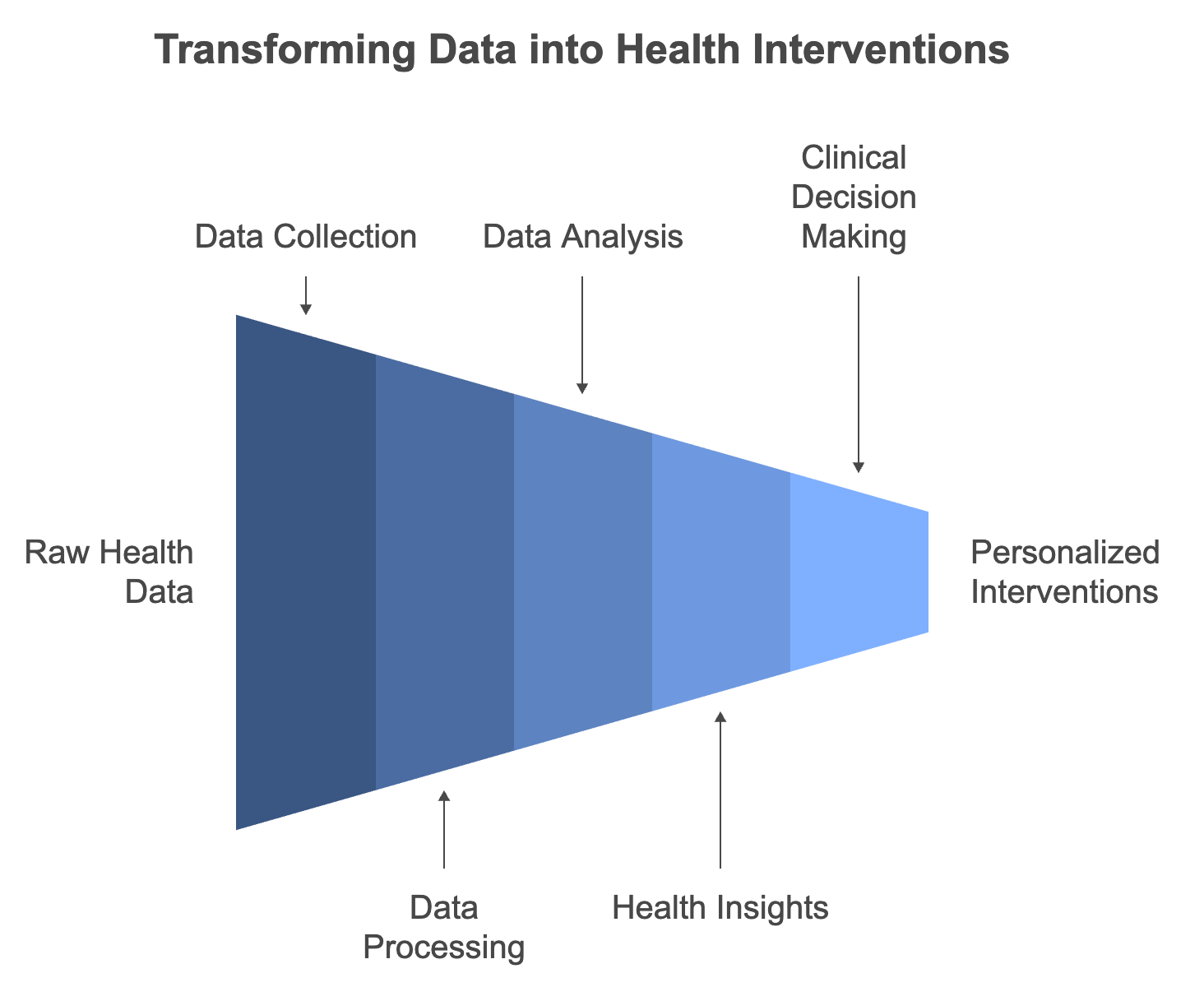
The Rapid Evolution: From Fitbits to Nanobots
The journey of digital biomarkers from novelty gadgets to critical health tools has been nothing short of meteoric. It's as if we've gone from the Wright brothers' first flight to landing on the moon in just a decade.
Cast your mind back to 2010. The first-generation Fitbit had just hit the market, offering little more than a glorified pedometer. Fast forward to today, and we have smartwatches that can detect atrial fibrillation, smart rings that predict illness by monitoring body temperature, and smartphones that can perform diagnostic-quality ECGs.
But this is just the beginning. The next wave of digital biomarkers is set to make today's wearables look as outdated as a Nokia 3310 in an Apple Store.
Imagine swallowing a pill-sized robot that patrols your digestive tract, detecting early signs of colon cancer or inflammatory bowel disease. This isn't science fiction – companies like Ankon Technologies are already developing such devices.
Or consider the potential of smart tattoos, like those being developed at Harvard and MIT. These biosensitive inks change color in response to variations in interstitial fluid, potentially turning your skin into a real-time health dashboard.
Even more mind-bending are the neural interfaces being pioneered by companies like Neuralink. While their primary focus is on treating neurological conditions, the potential for these brain-computer interfaces to serve as digital biomarkers for mental health and cognitive function is enormous.
The rate of progress is staggering. We've gone from counting steps to predicting strokes in just a decade. By 2030, we might well be at the point where our bodies are continuously monitored by a network of internal and external sensors, all working in concert to keep us in optimal health.
In this brave new world of health monitoring, the question isn't just "What can we measure?" but "What can't we measure?"
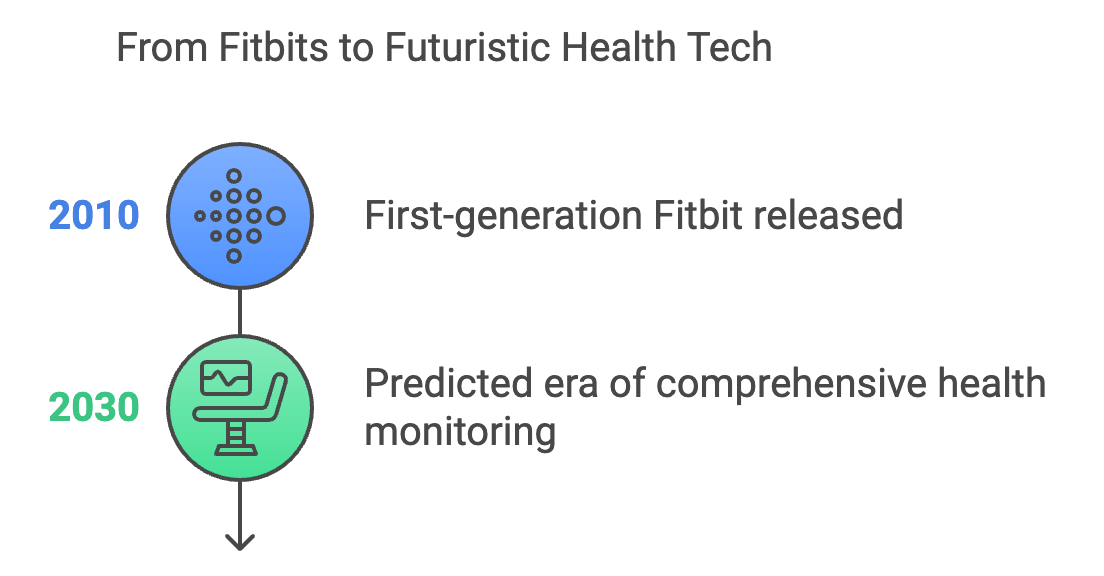
Real-World Applications: Digital Biomarkers in Action
The true power of digital biomarkers lies not in their technological wizardry, but in their real-world impact on human lives. Let's explore two groundbreaking examples that showcase the life-changing potential of this technology.
Case Study: Early Alzheimer's Detection Through Smartphone Use
Imagine being able to detect Alzheimer's disease years before the first noticeable symptoms appear, simply by analyzing how someone uses their smartphone. This is exactly what researchers at Apple, in collaboration with pharmaceutical giant Eli Lilly and health startup Evidation, are working on.
The study, published in 2019, found that individuals with cognitive decline typed more slowly, sent fewer text messages, and relied more heavily on helper apps than their cognitively healthy counterparts. By analyzing these digital biomarkers, researchers believe they can identify early signs of dementia long before traditional diagnostic methods.
The implications are profound. Early detection could lead to earlier interventions, potentially slowing the progression of the disease and significantly improving quality of life for millions of people worldwide.
Example: Continuous Glucose Monitoring Revolutionizing Diabetes Management
For the 422 million people worldwide living with diabetes, digital biomarkers are already transforming care. Continuous Glucose Monitoring (CGM) devices, like those produced by Dexcom and Abbott, have revolutionized diabetes management.
These small wearable devices continuously monitor blood glucose levels, sending real-time data to a smartphone app. This allows for much more precise management of blood sugar levels than traditional finger-prick tests.
But the real game-changer is how these devices are evolving. The latest CGMs don't just track glucose – they predict future levels based on patterns in the data. Some can even automatically adjust insulin delivery when paired with an insulin pump, creating a 'closed-loop' system that acts like an artificial pancreas.
The impact on quality of life is immense. Users report better sleep, less anxiety, and more freedom in their daily lives. Moreover, better glucose control leads to fewer complications, potentially saving healthcare systems billions in long-term care costs.
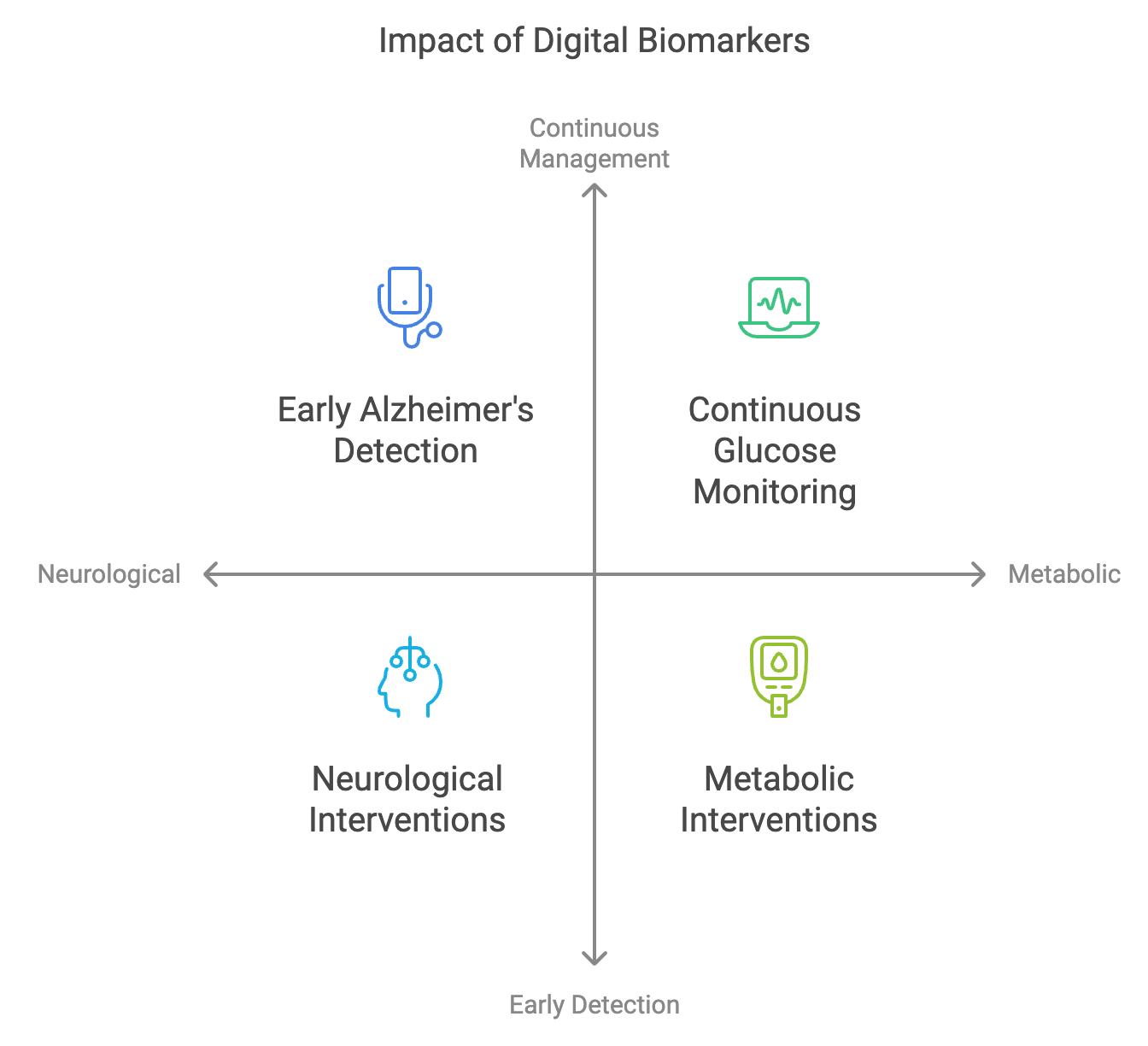
These examples illustrate how digital biomarkers are not just changing healthcare – they're changing lives, offering hope, freedom, and control to millions of people around the world.
"Digital biomarkers represent a paradigm shift in how we measure and track health. They offer the potential for more objective, sensitive, and frequent assessments of health and disease." - Dr. Donna Spruijt-Metz, Director of the mHealth Collaboratory at the University of Southern California [^1]
The Voice as a Window to Health: Vocal Biomarkers
In the symphony of digital biomarkers, vocal biomarkers are emerging as a particularly fascinating and powerful instrument. Our voices, it turns out, can reveal far more about our health than just how sore our throat is.
Vocal biomarkers are digital measurements of health-related features extracted from voice signals. These can include acoustic features like pitch, tempo, and rhythm, as well as linguistic features like word choice and sentence structure.
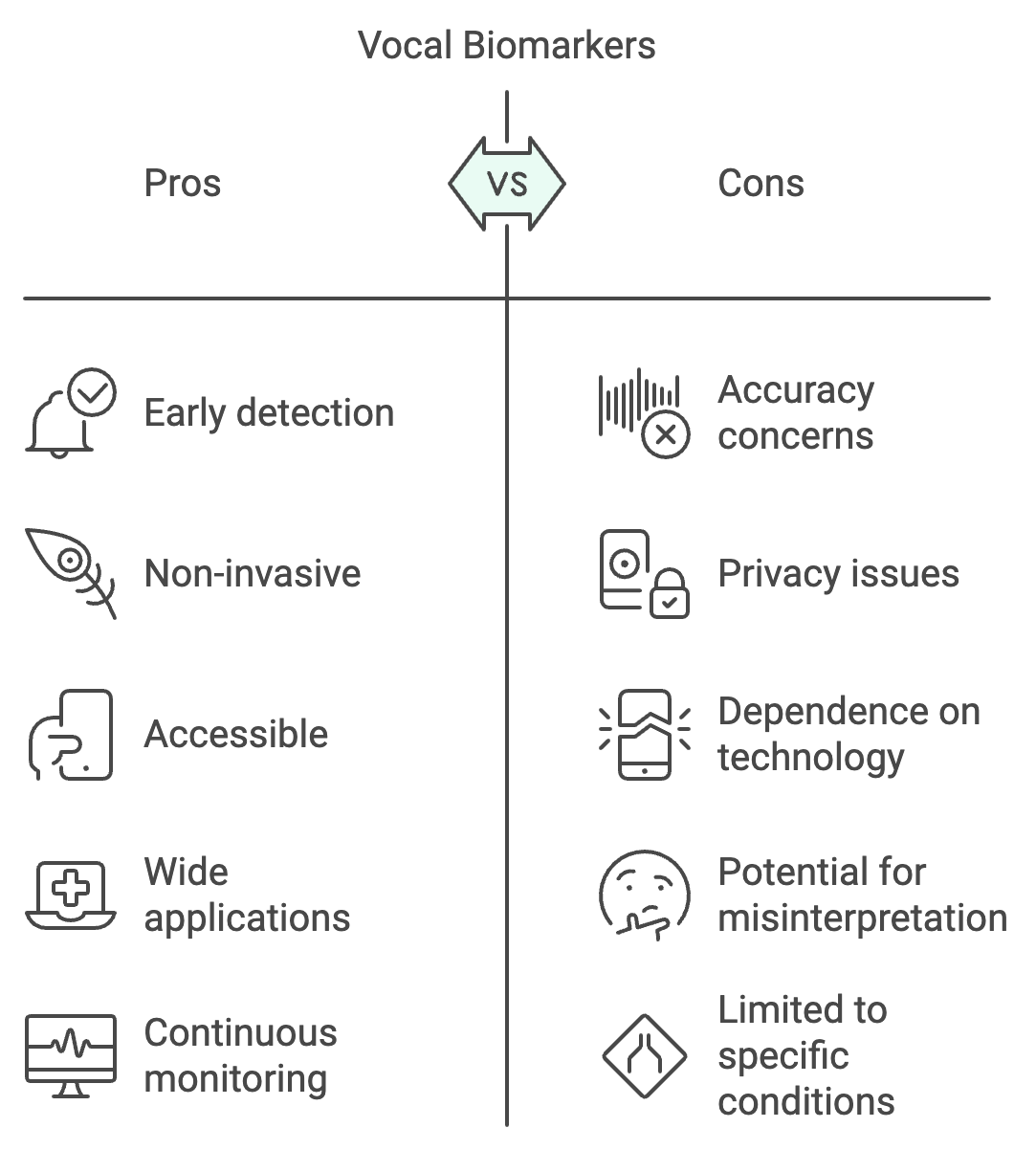
The potential applications are vast and varied:
- Mental Health: Companies like Sonde Health are developing tools to detect signs of depression and anxiety from voice samples. Changes in speech patterns, such as speaking more slowly or monotonously, can indicate depressive episodes.
- Neurological Disorders: Researchers have found that vocal biomarkers can help detect and monitor conditions like Parkinson's disease. Subtle changes in speech, often imperceptible to the human ear, can be early indicators of the disease.
- Respiratory Conditions: The sound of a cough or the way someone speaks can provide insights into respiratory health. This has gained particular relevance during the COVID-19 pandemic.
Real-world example: Detecting COVID-19 through voice samples
In 2020, researchers at MIT developed an AI model that could detect COVID-19 infections through forced-cough recordings. The model, trained on thousands of cough samples, could identify COVID-positive individuals with an impressive 98.5% accuracy.
What's particularly exciting about vocal biomarkers is their accessibility. Unlike many other digital biomarkers that require specialized devices, vocal biomarkers can be collected using technology we already use every day – our phones.
As we continue to refine our ability to analyze these vocal health signatures, our voices may well become one of our most powerful tools for early disease detection and continuous health monitoring. In the future, a simple phone call might double as a comprehensive health check-up.
Economic Impact: Saving Lives and Dollars
The potential of digital biomarkers to revolutionize healthcare isn't just about improving health outcomes – it's also about dramatically reducing healthcare costs. Let's break down the economic impact:
Chronic Disease Management: Chronic diseases account for 75% of healthcare spending in the United States. Digital biomarkers offer a way to significantly reduce these costs. For instance:
- Diabetes: A study by Evidation Health found that use of a CGM device reduced diabetes-related hospital visits by 39%. With each diabetes-related hospitalization costing an average of $9,000, the savings quickly add up.
- Heart Failure: A trial using a digital heart failure management platform reduced hospital readmissions by 57%, potentially saving $8,000 per patient annually.
Preventive Care: By enabling earlier detection and intervention, digital biomarkers can help prevent or delay the onset of costly chronic conditions. The Milken Institute estimates that improving prevention of chronic diseases could save the U.S. economy more than $1 trillion annually.
Clinical Trials: Digital biomarkers are also set to slash the cost of drug development. Medidata Solutions estimates that the use of wearable devices in clinical trials could reduce costs by up to 15% per trial, potentially saving pharmaceutical companies hundreds of millions of dollars annually.
Healthcare Systems and Insurers: For healthcare systems and insurers, the economic benefits are twofold. First, there's the direct cost savings from reduced hospitalizations and more efficient care. Second, there's the potential for new, value-based care models enabled by continuous health data.
One analysis by Frost & Sullivan predicts that digital biomarkers could help reduce healthcare costs by up to 35% over the next five years.
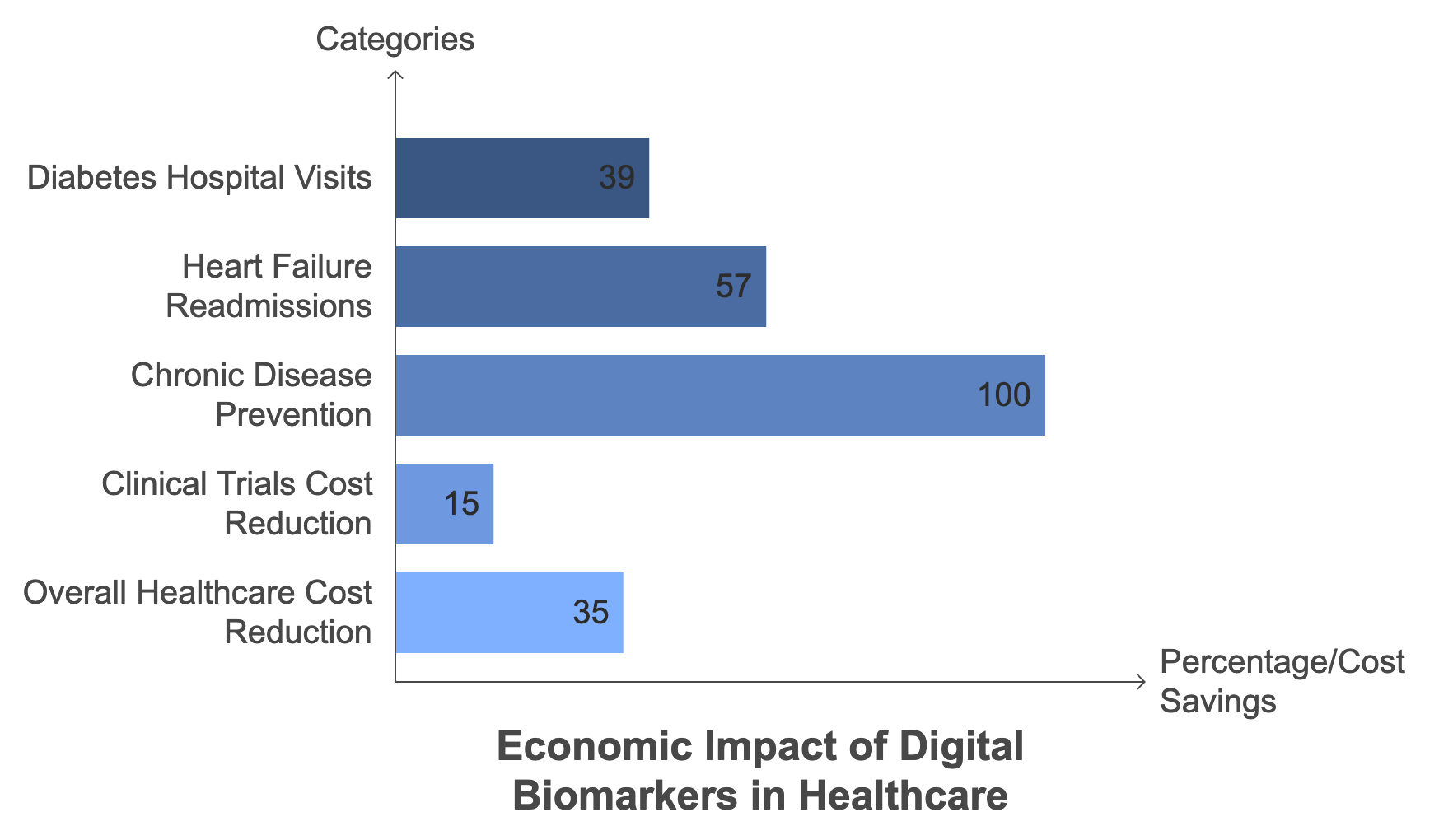
While the initial investment in digital biomarker technology may be substantial, the long-term economic benefits – both in terms of reduced healthcare costs and improved productivity due to better health outcomes – are potentially enormous. It's not just a medical revolution, but an economic one as well.
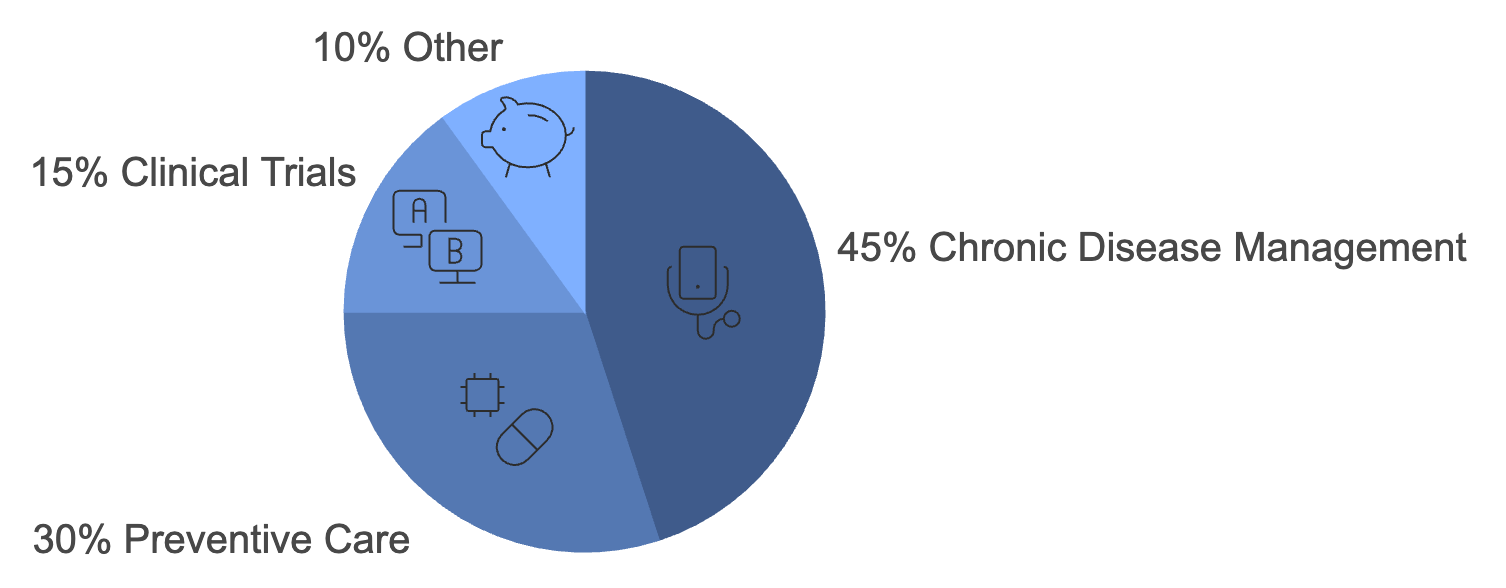
Reshaping Clinical Trials: Faster, Cheaper, Better
Digital biomarkers are set to revolutionize not just how we manage health, but how we develop new treatments. The impact on clinical trials is particularly profound, promising to make the drug development process faster, cheaper, and more effective.
Traditionally, clinical trials have been expensive, time-consuming, and often inefficient. Participants typically need to make frequent visits to clinical sites for assessments, leading to high dropout rates and skewed data. Digital biomarkers are changing this paradigm.
Here's how:
- Remote Monitoring: Wearable devices allow for continuous, remote monitoring of participants. This reduces the need for site visits, making trials more convenient for participants and potentially reducing dropout rates.
- Real-World Data: Digital biomarkers provide a more comprehensive, real-world picture of a participant's health than periodic clinical assessments.
- Early Detection of Safety Issues: Continuous monitoring can flag potential safety concerns earlier, potentially saving lives and avoiding costly late-stage trial failures.
- More Efficient Recruitment: Digital phenotyping can help identify suitable participants more accurately, speeding up the recruitment process.
Case Study: Pfizer's REMOTE Trial
In 2011, Pfizer conducted the first-ever completely remote clinical trial, called REMOTE. While this pioneering effort faced challenges, it paved the way for future virtual trials. More recently, in 2020, Pfizer successfully used digital tools in its COVID-19 vaccine trials, significantly accelerating the development process.
Another example comes from Koneksa Health, which reported that one of its pharmaceutical clients reduced data collection costs by 50% and shortened their trial timeline by 30% using digital biomarkers.
These advancements don't just save money – they can get life-saving treatments to patients faster. As digital biomarker technology continues to evolve, we can expect clinical trials to become increasingly virtual, efficient, and patient-centric.
"Digital biomarkers are revolutionizing clinical trials by providing more comprehensive and objective measures of health status and treatment effects. This could lead to faster, more efficient drug development and ultimately, better treatments for patients." - Dr. Noah Craft, Co-founder and CEO of Science 37 [^2]
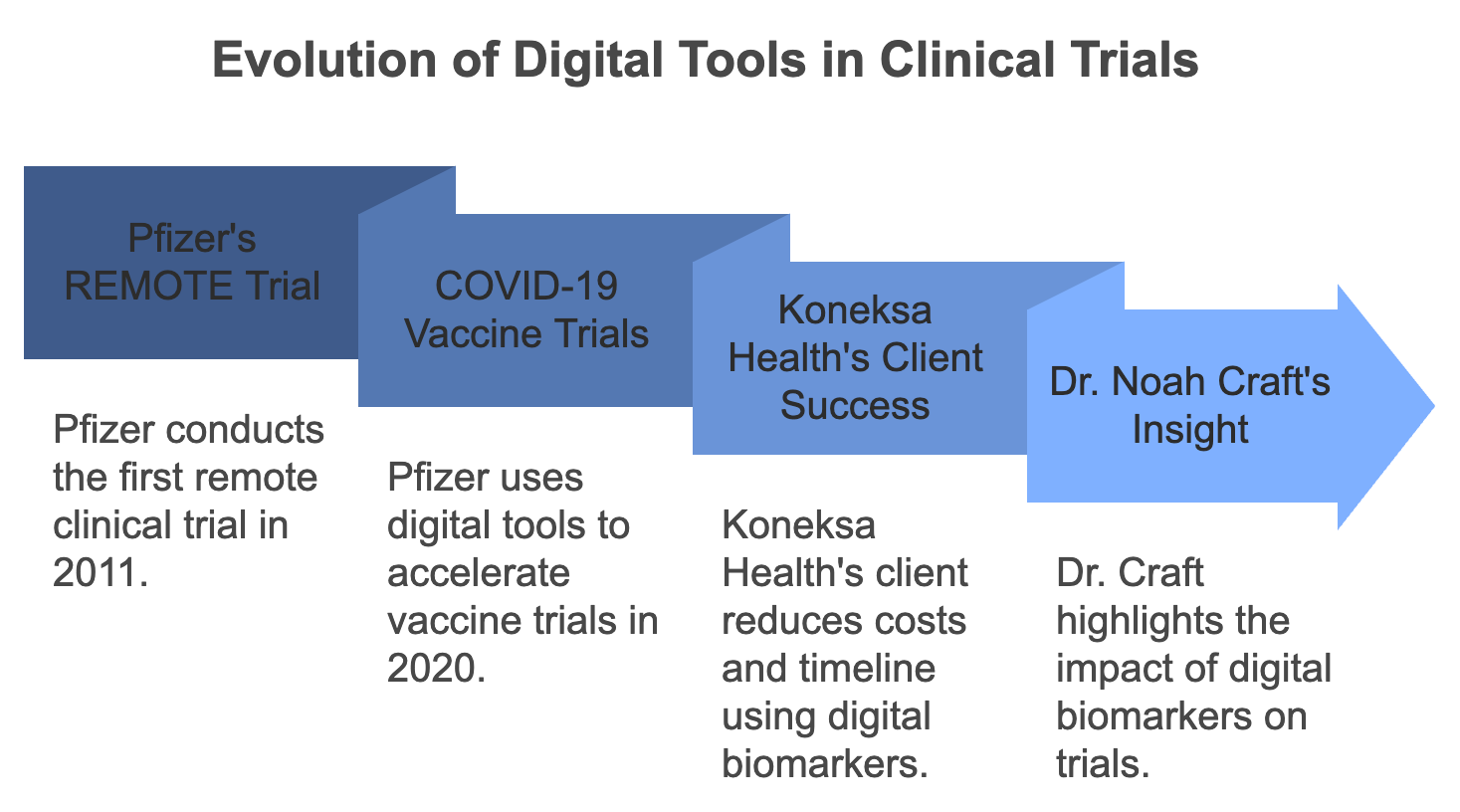
The Broader Landscape: Digital Health Ecosystem
Digital biomarkers don't exist in isolation – they're part of a broader digital health ecosystem that's reshaping healthcare as we know it. To truly understand their impact, we need to zoom out and look at the bigger picture.
This ecosystem includes:
- Telemedicine: The rise of virtual consultations, accelerated by the COVID-19 pandemic, complements digital biomarkers by providing a platform for remote care delivery.
- Electronic Health Records (EHRs): Digital biomarkers can integrate with EHRs, providing clinicians with a more comprehensive view of a patient's health over time.
- Artificial Intelligence and Machine Learning: These technologies are crucial for analyzing the vast amounts of data generated by digital biomarkers and deriving actionable insights.
- Internet of Medical Things (IoMT): From smart pills to connected inhalers, the IoMT is expanding the reach of digital health monitoring.
- Digital Therapeutics: Software-based interventions that can prevent, manage, or treat medical disorders or diseases.
Comparison: While all these technologies are transformative, digital biomarkers stand out in their ability to provide continuous, objective health data. Unlike telemedicine or EHRs, which rely on periodic interactions, digital biomarkers offer a constant stream of health information.
Integration Challenges and Opportunities: The key challenge – and opportunity – lies in integration. For digital biomarkers to reach their full potential, they need to work seamlessly with these other technologies. Imagine a world where your smartwatch detects an irregular heartbeat, automatically schedules a telemedicine appointment, sends the data to your EHR, and an AI system suggests potential diagnoses to your doctor – all before you even realize something's wrong.
This level of integration is the next frontier in digital health, promising a healthcare system that's not just reactive, but predictive and preventative.
Ethical Considerations and Privacy Concerns
As we rush headlong into this brave new world of digital health, we must pause to consider the ethical implications and privacy concerns that come with it. The old adage "with great power comes great responsibility" has never been more apt.
The continuous collection of health data raises significant privacy concerns. Every heartbeat, every step, every fluctuation in our biology becomes a data point. While this information can be invaluable for health management, it's also deeply personal. The question arises: who owns this data, and who has the right to access it?
There's also the issue of consent. In a world where our devices are constantly monitoring us, how do we ensure that individuals are fully aware of what data is being collected and how it's being used? The concept of informed consent becomes increasingly complex in this context.
Another critical concern is the potential for misuse of this data. Could insurance companies use digital biomarker data to discriminate against individuals? Might employers use this information in hiring decisions? The potential for abuse is significant.
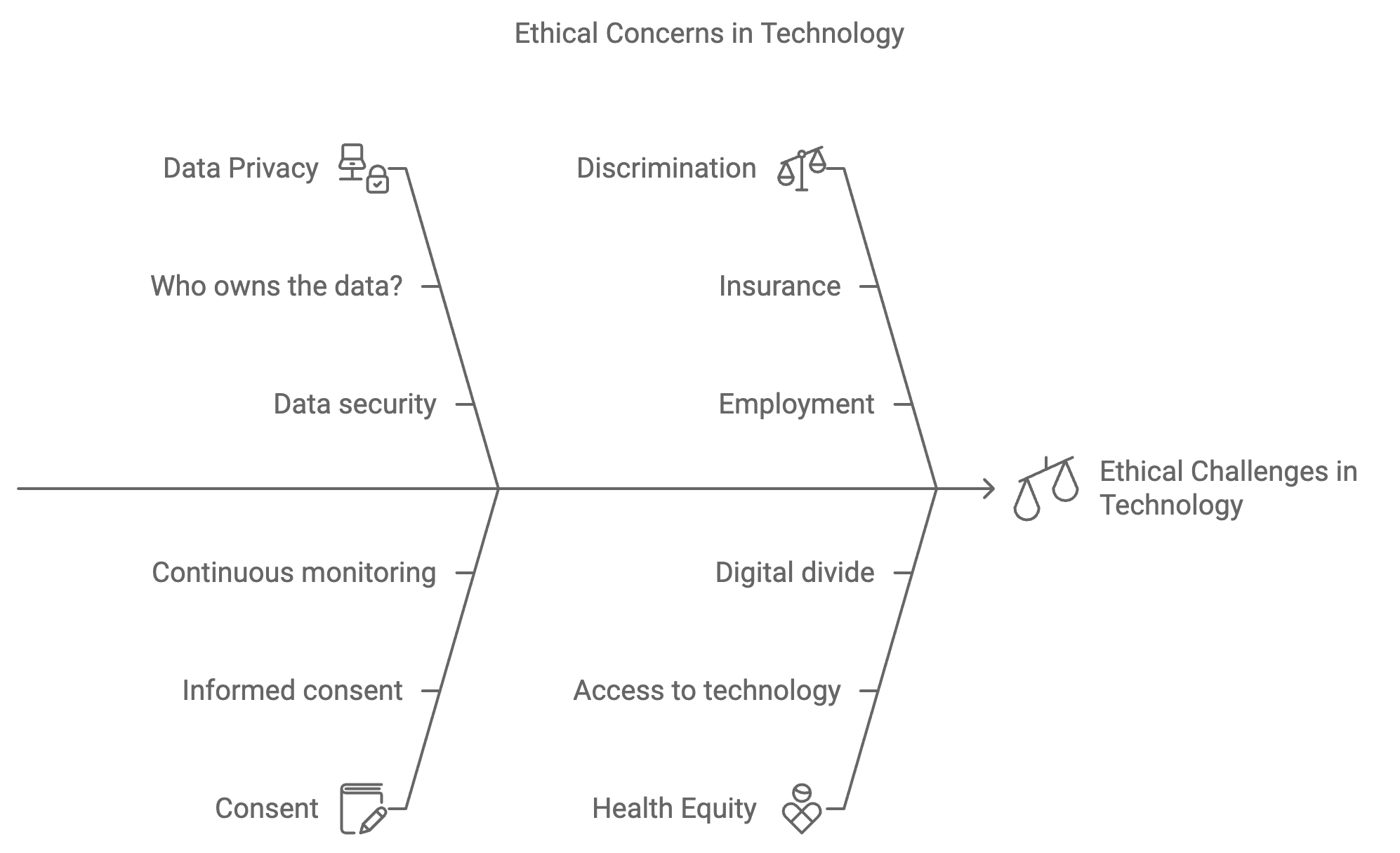
There's also the risk of creating a "tyranny of health," where individuals feel constantly pressured to optimize their biomarkers, potentially at the expense of quality of life.
Addressing these concerns will require a multi-faceted approach:
- Robust data protection laws and regulations
- Transparent data collection and usage policies
- Education to ensure individuals understand the implications of sharing their health data
- Ethical frameworks for the development and deployment of digital biomarker technologies
As we advance into this new era of health monitoring, we must ensure that our ethical and legal frameworks keep pace with technological progress. The goal should be to harness the benefits of digital biomarkers while steadfastly protecting individual privacy and autonomy.
The Future is Now: Preparing for the Biomarker-Driven World
As we stand on the brink of this healthcare revolution, it's clear that the future of medicine will be profoundly shaped by digital biomarkers. But this future isn't some distant reality – it's unfolding right now, and we all have a role to play in shaping it.
For healthcare providers, embracing digital biomarkers means rethinking traditional models of care. It requires a shift from episodic, reactive healthcare to continuous, proactive health management. This will necessitate new skills, new workflows, and a new mindset.
Policymakers face the challenge of creating regulatory frameworks that encourage innovation while protecting patient rights and privacy. They must strike a delicate balance between enabling progress and ensuring safety and ethical use of health data.
For individuals, the biomarker-driven future offers unprecedented control over our health. But it also requires us to become more engaged, more health-literate, and more proactive in our health management. We must learn to interpret our own health data and work in partnership with healthcare providers to optimize our wellbeing.
The vision of healthcare in 2030 is one of personalized, predictive, and preventive medicine. Imagine a world where:
- Diseases are caught and treated before symptoms appear
- Treatment plans are continuously adjusted based on real-time health data
- Our environments automatically adapt to optimize our health
- Healthcare becomes truly patient-centric, with individuals as active partners in their care
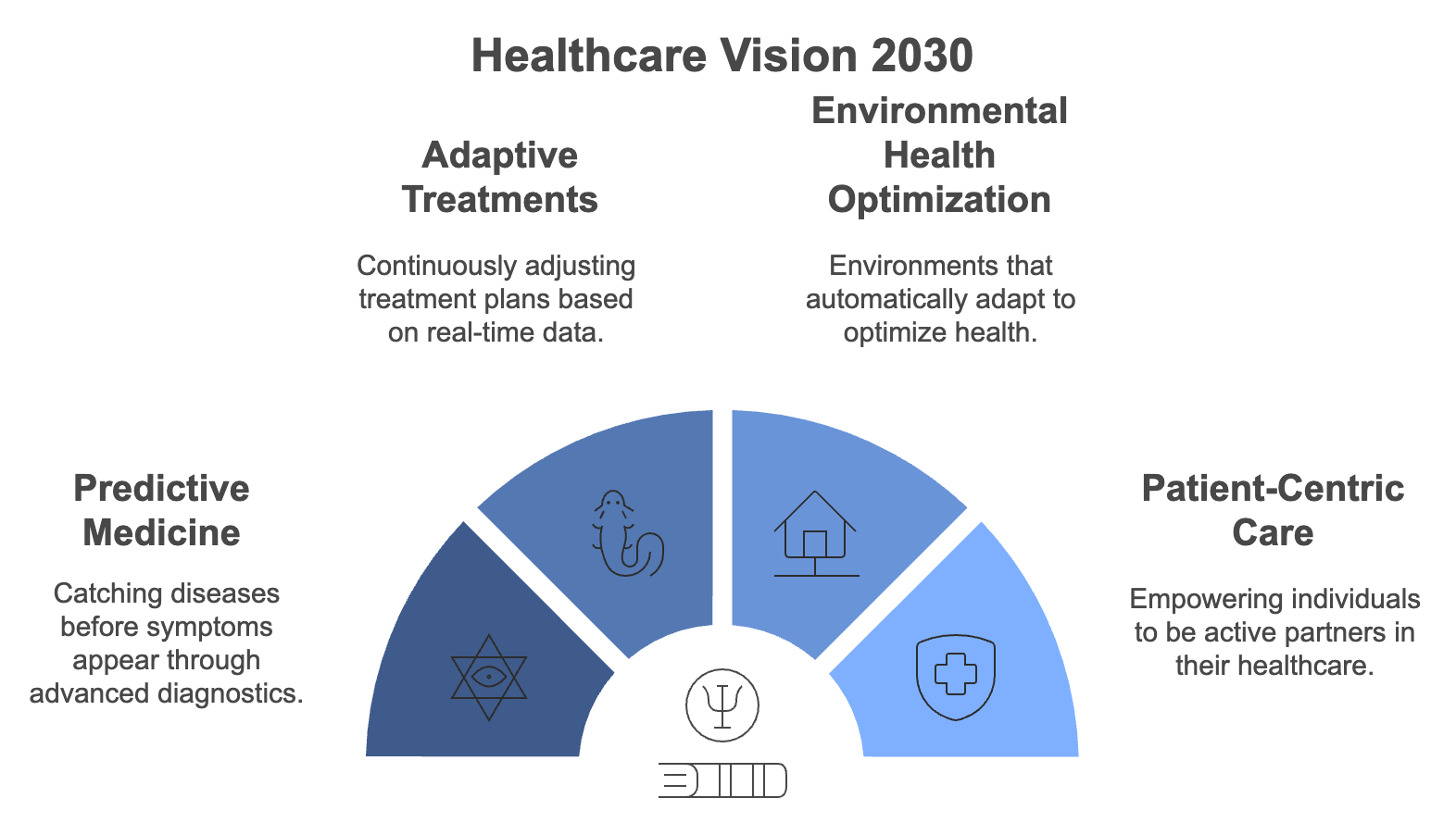
This future is within our grasp, but realizing it will require collaboration across sectors, from technology and healthcare to policy and education. The digital biomarker revolution isn't just changing healthcare – it's redefining our relationship with our own bodies and health.
As we embrace this new era, let's do so with enthusiasm for its potential, but also with a clear-eyed view of the challenges it presents. The future of health is digital, and it's up to all of us to ensure it's a future that benefits everyone.
"The future of healthcare is not just about treating disease, but about maintaining health. Digital biomarkers will play a crucial role in this shift, enabling us to detect and intervene in health issues earlier than ever before." - Dr. Eric Topol, Founder and Director of the Scripps Research Translational Institute [^3]
Token Wisdom: Opportunities, Challenges, and Readiness
The digital biomarker revolution represents a seismic shift in how we approach health and healthcare. From transforming clinical trials to empowering individuals with unprecedented insights into their own health, digital biomarkers are set to redefine the very concept of healthcare.
As we've explored throughout this article, the potential benefits are enormous: earlier disease detection, more personalized treatments, more efficient clinical trials, and significant cost savings for healthcare systems. But with these benefits come challenges, particularly in the realms of data privacy, ethical use of health information, and ensuring equitable access to these transformative technologies.
The journey ahead is both exciting and daunting. It will require collaboration across disciplines, from data scientists and software engineers to clinicians and ethicists. It will demand new regulatory frameworks, new educational approaches, and new ways of thinking about health and disease.
But if we can navigate these challenges successfully, the reward could be a healthcare system that is more proactive, more personalized, and more effective than anything we've seen before. A system where health is not just the absence of disease, but a state of ongoing optimization and wellbeing.
The digital biomarker revolution is not just about technology – it's about reimagining what healthcare can be. And in doing so, it offers the promise of not just longer lives, but healthier, more empowered ones. The future of health is digital, and it's arriving faster than we think. Are we ready?
Courtesy of your friendly neighborhood,
🌶️ Khayyam
Footnotes:

Knowware — The Third Pillar of Innovation
Systems of Intelligence for the 21st Centurty

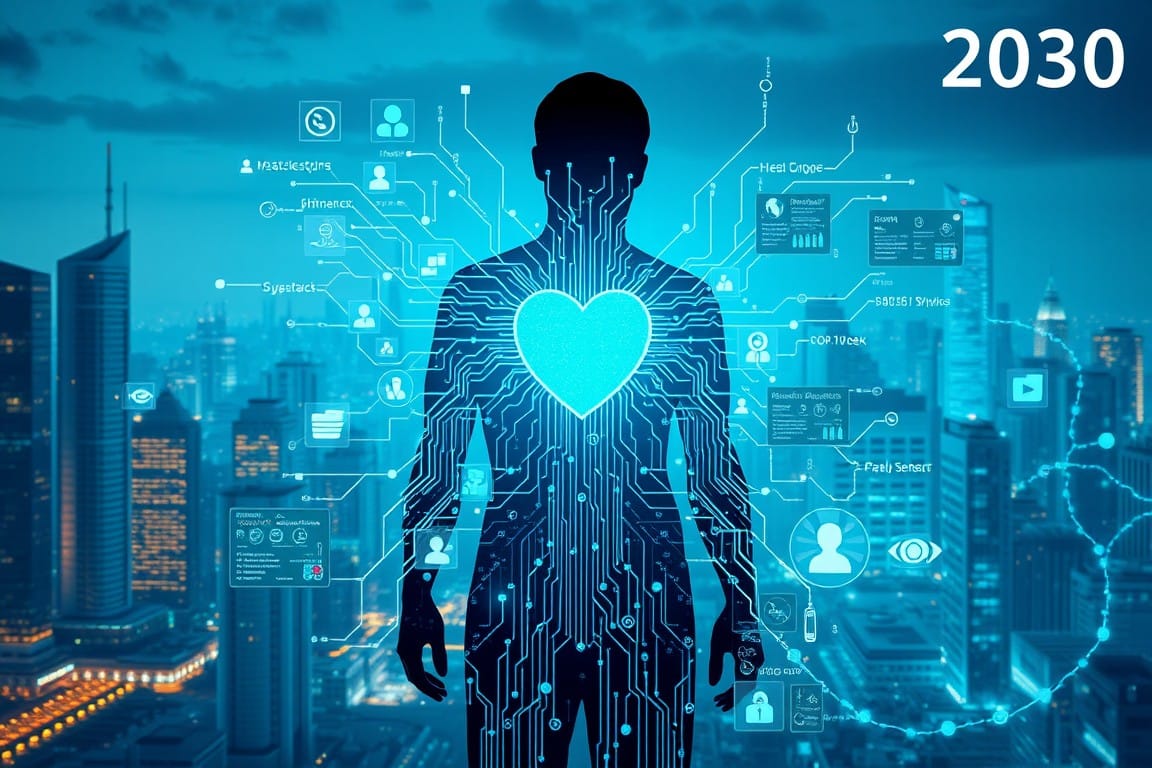






Member discussion